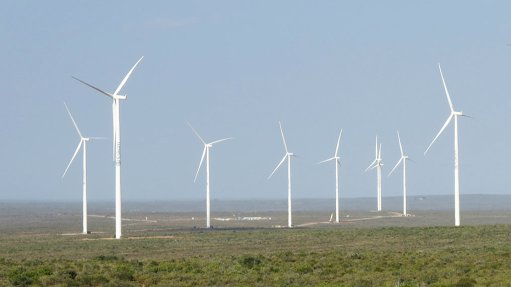Internalise an external cost
If you know nothing about sin taxes, then your salvation lies in the mere expression of the four words in the headline. Merely mentioning them will elevate you to the status of a tax expert, and slipping in a reference to Pigovian taxes (also spelt Pigouvian taxes) will elevate you to tax rockstar status.
The phrase ‘sin taxes’ appears to be noble in concept, but is it? Most, if not all, religions subscribe to the notion that one must pay for one’s sins. However, not all religions might be willing to put a monetary value on the sin or enforcing such a payment. In most instances, simply repenting of one’s sins would suffice.
Sin taxes are levied on activities considered to be socially undesirable. These taxes are also called sumptuary taxes – from sumptuary laws, which attempt to regulate consumption. Black's Law Dictionary defines sumptuary laws as “laws made for the purpose of restraining luxury or extravagance, particularly against inordinate expenditures for apparel, food, furniture, etc”. Historically, these laws were intended to regulate and reinforce social hierarchies and morals through restrictions on specified privileged goods. According to Aileen Ribeiro’s book, Dress and Morality, sumptuary taxes were used to make it easy to identify social rank and privilege, and could thus be used for social discrimination.
Sin taxes serve to curb alcohol and tobacco consumption, gambling and vehicle emissions, while sumptuary taxes are imposed on soft drinks and sugar.
Let us pause for a moment and reflect on the four words, ‘internalise an external cost’. In economics, the prices of goods and services are determined by what the discipline’s founding father, Adam Smith, referred to as the invisible hand. In laypersons’ terms, the prices of goods and services (good) are determined by the demand for and supply of that particular good. When a consumers buys the good, he or she pays all the costs associated with the production and future use of the good. But this is not true where the consumer imposes a cost on another person through his or her use of the good, since this cost is not included in the price of the good.
A case in point is the consumption of cigarettes, which imposes a cost on another person who is exposed to second-hand smoke. The smoker does not pay for the cost that he or she imposes on the other person. To address the failure of the invisible hand, government imposes a sin tax on cigarettes. The justification is that government generates revenue from the consumption of cigarettes that it uses to meet the cost imposed on nonsmokers, who might require medication or treatment, which is the external cost smokers impose on them. In economics-speak, a sin tax serves to internalise an external cost. You might well question whether government is indeed using sin taxes for the intended purpose. I content that government uses sin taxes as a fiscal – or revenue – measure.
Why my sudden interest in sin taxes? On June 4, Fin24 reported that, “as the date nears for the start of the first court case challenging the ban on the sale of cigarettes during lockdown, the State has argued that economic costs of lost tax are ‘outweighed by the harms of allowing continued sales, given the health risks smoking poses during the coronavirus pandemic”. The report continues: “If tobacco use gives rise to more people with a more severe form of Covid-19, this generates additional healthcare costs . . . Even without Covid-19, the healthcare costs associated with tobacco are enormous.”
As my father used to say, there is a time and a place for everything. I’m not a smoker, but I believe that banning the sale of cigarettes during the lockdown was bad timing. Government merely created a scarcity, but more on that next week.
Article Enquiry
Email Article
Save Article
Feedback
To advertise email advertising@creamermedia.co.za or click here
Press Office
Announcements
What's On
Subscribe to improve your user experience...
Option 1 (equivalent of R125 a month):
Receive a weekly copy of Creamer Media's Engineering News & Mining Weekly magazine
(print copy for those in South Africa and e-magazine for those outside of South Africa)
Receive daily email newsletters
Access to full search results
Access archive of magazine back copies
Access to Projects in Progress
Access to ONE Research Report of your choice in PDF format
Option 2 (equivalent of R375 a month):
All benefits from Option 1
PLUS
Access to Creamer Media's Research Channel Africa for ALL Research Reports, in PDF format, on various industrial and mining sectors
including Electricity; Water; Energy Transition; Hydrogen; Roads, Rail and Ports; Coal; Gold; Platinum; Battery Metals; etc.
Already a subscriber?
Forgotten your password?
Receive weekly copy of Creamer Media's Engineering News & Mining Weekly magazine (print copy for those in South Africa and e-magazine for those outside of South Africa)
➕
Recieve daily email newsletters
➕
Access to full search results
➕
Access archive of magazine back copies
➕
Access to Projects in Progress
➕
Access to ONE Research Report of your choice in PDF format
RESEARCH CHANNEL AFRICA
R4500 (equivalent of R375 a month)
SUBSCRIBEAll benefits from Option 1
➕
Access to Creamer Media's Research Channel Africa for ALL Research Reports on various industrial and mining sectors, in PDF format, including on:
Electricity
➕
Water
➕
Energy Transition
➕
Hydrogen
➕
Roads, Rail and Ports
➕
Coal
➕
Gold
➕
Platinum
➕
Battery Metals
➕
etc.
Receive all benefits from Option 1 or Option 2 delivered to numerous people at your company
➕
Multiple User names and Passwords for simultaneous log-ins
➕
Intranet integration access to all in your organisation

















